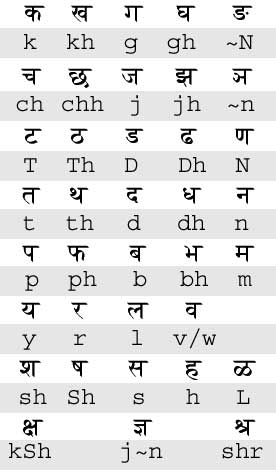




Posted on 01/12/2006 7:06:13 PM PST by dennisw
Most modern Indians descended from South Asians, not invading Central Asian steppe dwellers, a new genetic study reports.
The Indian subcontinent may have acquired agricultural techniques and languages—but it absorbed few genes—from the west, said Vijendra Kashyap, director of India's National Institute of Biologicals in Noida.
The finding disputes a long-held theory that a large invasion of central Asians, traveling through a northwest Indian corridor, shaped the language, culture, and gene pool of many modern Indians within the past 10,000 years.
That theory is bolstered by the presence of Indo-European languages in India, the archaeological record, and historic sources such as the Rig Veda, an early Indian religious text.
Some previous genetic studies have also supported the concept.
But Kashyap's findings, published in the current issue of the Proceedings of the National Academies of Science, stand at odds with those results.
True Ancestors
Testing a sample of men from 32 tribal and 45 caste groups throughout India, Kashyap's team examined 936 Y chromosomes. (The chromosome determines gender; males carry it, but women do not.)
The data reveal that the large majority of modern Indians descended from South Asian ancestors who lived on the Indian subcontinent before an influx of agricultural techniques from the north and west arrived some 10,000 years ago.
Most geneticists believe that humans first reached India via a coastal migration route perhaps 50,000 years ago.
Soon after leaving Africa, these early humans are believed to have followed the coast through southern India and eventually continued on to populate distant Australia.
Peter Underhill, a research scientist at the Stanford University School of Medicine's department of genetics, says he harbors no doubts that Indo-European speakers did move into India. But he agrees with Kashyap that their genetic contribution appears small.
It doesn't look like there was a massive flow of genes that came in a few thousand years ago," he said. "Clearly people came in to India and brought their culture, language, and some genes."
"But I think that the genetic impact of those people was minor," he added. "You'd don't really see an equivalent genetic replacement the way that you do with the language replacement."
Language, Genes Tell Different Tales
Kashyap and his colleagues say their findings may explain the prevalence of Indo-European languages, such as Hindi and Bengali, in northern India and their relative absence in the south.
"The fact the Indo-European speakers are predominantly found in northern parts of the subcontinent may be because they were in direct contact with the Indo-European migrants, where they could have a stronger influence on the native populations to adopt their language and other cultural entities," Kashyap said.
He argues that even wholesale language changes can and do occur without genetic mixing of populations.
"It is generally assumed that language is more strongly correlated to genetics, as compared to social status or geography, because humans mostly do not tend to cross language boundaries while choosing marriage partners," Kashyap said.
"Although few of the earlier studies have shown that language is a good predictor of genetic affinity and that Y chromosome is more strongly correlated with linguistic boundaries, it is not always so," he added.
"Language can be acquired [and] has been in cases of 'elite dominance,' where adoption of a language can be forced but strong genetic differences remain [because of] the lack of admixture between the dominant and the weak populations."
If steppe-dwelling Central Asians did lend language and technology, but not many genes, to northern India, the region may have changed far less over the centuries than previously believed.
"I think if you could get into a time machine and visit northern India 10,000 years ago, you'd see people … similar to the people there today," Underhill said. "They wouldn't be similar to people from Bangalore [in the south]."
I have to say I'm disillusioned!
I would say that is true if you consider just the Dravidians. But there are many who are Sakas. No question their origins.
GGG ping
India itself is as much an admixture of genetic types as the people of North and South America who are commonly referred to as "American Indians". There are ethnic types ranging from those who could easily pass for European to those that are definitely of East Asian derivation, and even some of Polynesian origins.
Some migrations are of greater extent, and began much earlier, than common belief has credited them with being.
Probably the great transmitter of culture across the "Indo-European" tribes was more the existence of the Persian Empire than of any actual migration of people from one place to another. Armies travel, not harvesters of grain and herders of animals.
The word "punch" and Punjab (Panjab) are both derived from the Sanskrit word for "five" (Punjab is a region with five rivers, and punch had five ingredients), which is similar to the Greek word pente meaning "five."
English "five" is also related, but the original p changed to f in the Germanic languages (Greek pater, English "father," Latin piscis, English "fish," Greek polos, English "foal," etc.)
In India, there are a number of nationalists who believe that all that is India or Indian, originated from India alone.
I wouldn't be surprised if Vijendra Kashyap is one of them.
The finding disputes a long-held theory that a large invasion of central Asians, traveling through a northwest Indian corridor, shaped the language, culture, and gene pool of many modern Indians within the past 10,000 years.FWIW, I don't accept geographical origin ideas proceeding from genetic studies, because single individuals living long ago have a disproportionate influence (through chance, for the most part) on large current populations; also, a lot of things have gone on in the past 10,000 (or 50,000, or 100,000) years which are not written down. It goes without saying that genetic material from that long ago is essentially nonexistent, so all the data collected merely shows current distributions.
That theory is bolstered by the presence of Indo-European languages in India, the archaeological record, and historic sources such as the Rig Veda, an early Indian religious text.
Thanks for the ping! Will do the list thang when I get home.
Tamil Trade
INTAMM | 1997 | Xavier S. Thani Nayagam
Posted on 09/11/2004 8:07:01 PM PDT by SunkenCiv
http://www.freerepublic.com/focus/f-chat/1213591/posts
'Detectives' unearth secrets of the past (Dilmun seals inscribed with Indus Valley inscription)
Daily News the Voice of Bahrain | Monday 6th June 2005 | Rebecca Torr
Posted on 06/24/2005 9:49:38 AM PDT by SunkenCiv
http://www.freerepublic.com/focus/f-chat/1429854/posts
40000 year old footprints in Mexico kinda change the timeline
http://www.freerepublic.com/focus/f-news/1436677/posts






So this theory that Indians borrowed only language, of the spoken form, and not the script, has some holes to patch.
So the Indian Tamil script has no vowels, like Hebrew?
Gad! We outsourced English?

.gif)
Please FREEPMAIL me if you want on or off the
"Gods, Graves, Glyphs" PING list or GGG weekly digest
-- Archaeology/Anthropology/Ancient Cultures/Artifacts/Antiquities, etc.
Gods, Graves, Glyphs (alpha order)
Disclaimer: Opinions posted on Free Republic are those of the individual posters and do not necessarily represent the opinion of Free Republic or its management. All materials posted herein are protected by copyright law and the exemption for fair use of copyrighted works.